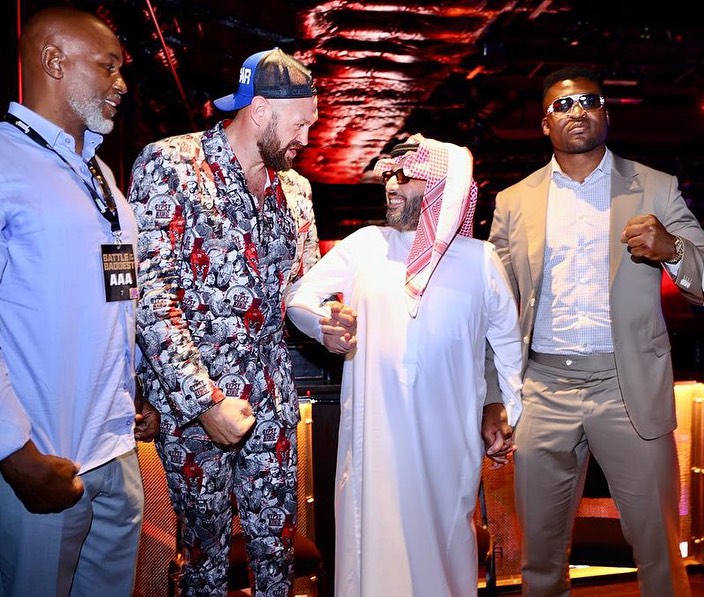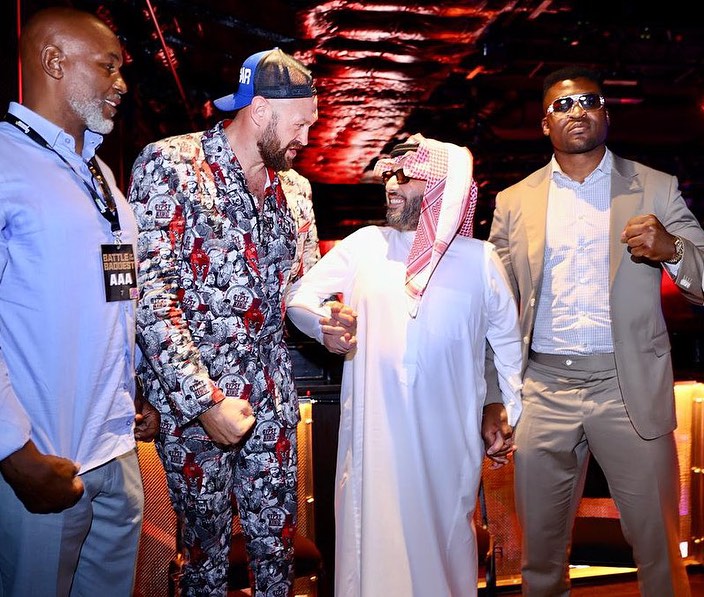By: Sean Crose
In June of 1980 boxing superstar “Sugar” Ray Leonard lost his WBC welterweight title belt in a stunningly impressive battle against the already legendary Roberto Duran. The fight, an instant classic, went down at Olympic Stadium in Montreal. Less than six months later, a much improved Leonard regained the WBC title from Duran when Duran suddenly and inexplicably quit in the eighth round of their highly anticipated rematch. That fight, one of the more notorious in the sport of boxing’s often notorious history, went down at New Orleans’ Superdome.

Yet Leonard’s next big victory – this time against fellow future legend Tommy Hearns -would go down in a more flashy location for a major fight – Caesar Palace’s in Las Vegas. The following year WBC heavyweight champion Larry Holmes would stop popular contender Gerry Cooney in a Caesar’s Palace hosted bout so wildly hyped it actually made the cover of Time Magazine. By then it was obvious to anyone with a sense of clarity that Las Vegas was now the home of major boxing.
It had all started just a short time earlier, when Holmes battled the way over the hill Muhammad Ali at Caesar’s Palace in October of 1980. Las Vegas had presented boxing for years, but not at such a level. For the next several decades, every major bout, with few exceptions (1988’s Mike Tyson-Michael Spinks fight being one) would go down in Las Vegas. Now, however, over forty years after the 1981 Leonard-Hearns battle, Las Vegas is facing a real challenge – and from the most unlikely of places – Saudi Arabia.
Indeed, two major heavyweight cards, one involving a plethora of big names, the other featuring a fight for the undisputed heavyweight championship of the world, were announced this past week to much fanfare. Both cards are being hosted by the Middle Eastern kingdom. The reason for this change? Why money, of course! Saudi Arabia has a seemingly endless supply.
It’s a financial and political winner for all involved. The Guardian’s Donald McRae writes of “the uplifting transformation of Saudi into a gleaming new state where sporting icons beam down at the changes they are apparently helping to spread.” Yet McRae isn’t a gullible man, and fight fans shouldn’t be gullible, either.
The truth is that , if the Saudi government has it’s way, the country is going to be home to a lot more than top boxing cards. “Boxing began this sporting embrace of Saudi,” writes McRae, “and, ever since Anthony Joshua regained his world heavyweight titles from Andy Ruiz Jr on the outskirts of Riyadh in December 2019, this money-driven relationship has deepened. Golf and football followed, while cricket wonders what might happen when a proposed new Saudi league threatens to transcend the Indian Premier League billions.”
Suffice it to say, all of this may help distract the world from the more disturbing aspects of life in Saudi Arabia. For instance, McRae writes of Loujain al-Hathloul, a Saudi Arabian activist who found herself imprisoned for displeasing the Saudi Government. Apparently one of her offenses was protesting for the right of women to drive an automobile. “Her family,” writes McRae, “claim she was kidnapped in the United Arab Emirates and brought back to Saudi Arabia, where she was jailed for 1,001 days.” Suffice to say McRae reports that Loujain al-Hathloul is now living in Belgium – in exile.
But unpleasantries certainly don’t end there. Want to attend religious services in Saudi Arabia in public? Unless those services adhere to Sunni Islam, you can forget it. Equal rights for homosexuals? You can forget that, too. Read all the books you want? Watch all the shows you want” Sorry. Your choices are limited. What about speaking your mind? That’s fine – as long as what you say is government approved. Long story short – the Saudi government is most distinctly NOT in the business of seeing the world the way westerners do.
So what are fight fans to make of this? “Firstly, we understand the imperative of a boxer’s career, which is to make money,” McRae quotes Amnesty’s Felix Jenkins as saying. “We don’t tell anybody that they shouldn’t ply their trade in Saudi Arabia.” Still, Jenkins claims that if Fury (and no doubt others) could raise his “voice to counter the sportswashing narrative of the Saudi authorities (it) would be incredibly powerful.”
One doesn’t have to be a full throated supporter of Amnesty or any other organization to appreciate Jenkin’s words. Boxing and other sporting contests in Saudi Arabia don’t have to be avoided or ignored…but fighters and even fans (to whatever extent they can) might also be able to use the opportunity to confront the injustice they know exists there.




pharmacy coupons super pharmacy discount pharmacy mexico
canadian drug prices
http://expresscanadapharm.com/# buy prescription drugs from canada cheap
canadian online pharmacy
Their patient care is unparalleled.
can i get cheap clomid tablets
Their commitment to international standards is evident.
Their health seminars are always enlightening.
where to buy generic lisinopril pill
Their international drug database is unparalleled.
Their 24/7 support line is super helpful.
can you get fluoxetine
Their compounding services are impeccable.
alo789 chinh th?c: alo789 – alo789 dang nh?p
mexican pharmacy online order: mexican pharmacy online – Mexican Pharm Inter
http://indiamedfast.com/# online medicine shopping in india
online canadian drugstore
https://interpharmonline.com/# reputable canadian online pharmacies
maple leaf pharmacy in canada
is canadian pharmacy legit legitimate canadian pharmacies online canadian pharmacy king reviews
canadian pharmacies that deliver to the us: highest rated canadian online pharmacy – legal canadian pharmacy online
http://interpharmonline.com/# canadian pharmacy in canada
canada drugstore pharmacy rx
https://indiamedfast.shop/# IndiaMedFast.com
canada rx pharmacy: most trusted canadian pharmacies online – canadian drugs online
canadian drug prices online canadian pharmacy no prescription canadian pharmacy king reviews
safe canadian pharmacy: InterPharmOnline.com – canadian pharmacy 365
canadian king pharmacy: most trusted canadian pharmacies online – onlinepharmaciescanada com
https://mexicanpharminter.shop/# buying from online mexican pharmacy
canadian pharmacy tampa
http://indiamedfast.com/# India Med Fast
my canadian pharmacy review
canadian pharmacy 365: Inter Pharm Online – best canadian pharmacy
canadian pharmacy online ship to usa: InterPharmOnline.com – global pharmacy canada
http://interpharmonline.com/# canadian drugs pharmacy
my canadian pharmacy reviews
best rated canadian pharmacy Inter Pharm Online canadian family pharmacy
https://interpharmonline.shop/# northern pharmacy canada
certified canadian international pharmacy: canada pharmacy no prescription – my canadian pharmacy reviews
Generic100mgEasy order viagra cheapest viagra
http://generic100mgeasy.com/# buy generic 100mg viagra online
Cialis 20mg price in USA: Tadalafil Easy Buy – cialis without a doctor prescription
https://tadalafileasybuy.com/# Tadalafil Easy Buy
Kamagra Kopen Online: Kamagra Kopen – kamagra gel kopen
https://kamagrakopen.pro/# kamagra 100mg kopen
https://generic100mgeasy.shop/# Generic 100mg Easy
https://tadalafileasybuy.shop/# Cialis 20mg price
kamagra 100mg kopen: kamagra 100mg kopen – kamagra gel kopen
TadalafilEasyBuy.com Cheap Cialis cialis without a doctor prescription
Kamagra Kopen: kamagra gel kopen – KamagraKopen.pro
Tadalafil Easy Buy: TadalafilEasyBuy.com – Tadalafil Easy Buy
buy generic 100mg viagra online Generic100mgEasy buy generic 100mg viagra online
https://tadalafileasybuy.shop/# cialis for sale
https://kamagrakopen.pro/# Officiele Kamagra van Nederland
kamagra kopen nederland: kamagra kopen nederland – Officiele Kamagra van Nederland
https://kamagrakopen.pro/# kamagra kopen nederland
http://tadalafileasybuy.com/# Generic Cialis without a doctor prescription
Kamagra: Officiele Kamagra van Nederland – kamagra gel kopen
Generic Cialis price: Tadalafil price – TadalafilEasyBuy.com
Buy Cialis online Tadalafil Easy Buy Generic Cialis without a doctor prescription
пин ап: https://pinupkz.life/
пинап казино: https://pinupkz.life/
пин ап казино: https://pinupkz.life/
TadalafilEasyBuy.com Tadalafil Easy Buy TadalafilEasyBuy.com
pinup 2025 – пин ап
пин ап казино: https://pinupkz.life/
Generic100mgEasy Generic100mgEasy Generic 100mg Easy
пин ап казино официальный сайт – пин ап зеркало
пин ап казино: https://pinupkz.life/
пин ап зеркало – пин ап
cialis without a doctor prescription cialis without a doctor prescription Tadalafil Easy Buy
пин ап казино зеркало – пин ап казино официальный сайт
пин ап зеркало: https://pinupkz.life/
пин ап казино официальный сайт – пин ап
пин ап: https://pinupkz.life/
пин ап – пин ап вход
http://apotekonlinerecept.com/# apotek pa nett
de online drogist kortingscode: ApotheekMax – ApotheekMax
https://kamagrapotenzmittel.shop/# Kamagra Original
https://apotekonlinerecept.shop/# apotek online recept
Apotheek Max: Online apotheek Nederland met recept – Apotheek online bestellen
kamagra: kamagra – Kamagra online bestellen
https://apotheekmax.com/# Online apotheek Nederland zonder recept
Kamagra Oral Jelly: Kamagra online bestellen – Kamagra Oral Jelly
https://kamagrapotenzmittel.shop/# kamagra
apotek pa nett Apotek hemleverans idag Apotek hemleverans idag
http://apotheekmax.com/# de online drogist kortingscode
https://kamagrapotenzmittel.shop/# Kamagra Oral Jelly
Kamagra Oral Jelly kaufen: Kamagra Original – Kamagra kaufen
https://apotekonlinerecept.shop/# apotek online
https://apotheekmax.shop/# Beste online drogist
https://apotekonlinerecept.shop/# Apoteket online
Kamagra Oral Jelly: Kamagra kaufen ohne Rezept – Kamagra kaufen ohne Rezept
Kamagra Original: Kamagra online bestellen – Kamagra kaufen
Kamagra online bestellen: Kamagra Oral Jelly kaufen – Kamagra Original
http://kamagrapotenzmittel.com/# Kamagra Oral Jelly
http://apotheekmax.com/# Betrouwbare online apotheek zonder recept
Kamagra Oral Jelly: Kamagra Oral Jelly – Kamagra online bestellen
https://kamagrapotenzmittel.shop/# Kamagra online bestellen
apotek online apotek online Apotek hemleverans idag
Online apotheek Nederland zonder recept: Betrouwbare online apotheek zonder recept – Online apotheek Nederland zonder recept
http://apotekonlinerecept.com/# apotek online
Apotek hemleverans recept: Apotek hemleverans recept – Apoteket online
online apotheek: Apotheek online bestellen – Betrouwbare online apotheek zonder recept
https://apotekonlinerecept.com/# Apotek hemleverans idag
Agb Mexico Pharm reputable mexican pharmacies online mexican border pharmacies shipping to usa
www india pharm: www india pharm – indian pharmacy
northwest pharmacy canada: GoCanadaPharm – canadian pharmacy meds
cheapest online pharmacy india: www india pharm – www india pharm
Agb Mexico Pharm: Agb Mexico Pharm – mexican pharmaceuticals online
http://agbmexicopharm.com/# best online pharmacies in mexico
drugs from canada: go canada pharm – reliable canadian pharmacy
canadian mail order pharmacy: best canadian pharmacy to order from – pharmacy in canada
www india pharm: best india pharmacy – www india pharm
www india pharm: www india pharm – п»їlegitimate online pharmacies india
Agb Mexico Pharm: Agb Mexico Pharm – buying prescription drugs in mexico online
http://agbmexicopharm.com/# mexican online pharmacies prescription drugs
northwest pharmacy canada: GoCanadaPharm – best canadian pharmacy
canadian valley pharmacy GoCanadaPharm safe online pharmacies in canada
www india pharm: indian pharmacy paypal – www india pharm
www india pharm: indian pharmacies safe – best india pharmacy
trusted canadian pharmacy: go canada pharm – canadian pharmacies
Online medicine home delivery: www india pharm – www india pharm
AmOnlinePharm: AmOnlinePharm – AmOnlinePharm
prednisone 10 mg daily: 10 mg prednisone tablets – Pred Pharm Net
AmOnlinePharm: amoxicillin without prescription – amoxicillin brand name
Clom Fast Pharm how to buy generic clomid no prescription can i purchase clomid price
http://predpharmnet.com/# prednisone 10 mg daily
AmOnlinePharm: AmOnlinePharm – amoxicillin 875 mg tablet
prednisone 10 mg price: Pred Pharm Net – Pred Pharm Net
https://zithpharmonline.com/# ZithPharmOnline
can you get cheap clomid without insurance: Clom Fast Pharm – clomid for sale
Pred Pharm Net Pred Pharm Net Pred Pharm Net
Pred Pharm Net: Pred Pharm Net – buy prednisone 10 mg
Pred Pharm Net: prednisone 1mg purchase – Pred Pharm Net
AmOnlinePharm: where can you buy amoxicillin over the counter – AmOnlinePharm
Lisin Express: Lisin Express – lisinopril 20mg discount
https://predpharmnet.shop/# prednisone acetate
Pred Pharm Net: prednisone brand name – prednisone 30 mg
prescription medicine lisinopril zestril 40 mg tablet cost for 20 mg lisinopril
https://lisinexpress.shop/# lisinopril 40 mg tablet price
AmOnlinePharm: AmOnlinePharm – AmOnlinePharm
Pred Pharm Net: Pred Pharm Net – Pred Pharm Net
how to get zithromax over the counter: zithromax for sale cheap – ZithPharmOnline
ZithPharmOnline buy zithromax no prescription ZithPharmOnline
Pred Pharm Net: Pred Pharm Net – prednisone 20 mg
zithromax z-pak: zithromax price canada – ZithPharmOnline
http://amonlinepharm.com/# AmOnlinePharm
Clom Fast Pharm: Clom Fast Pharm – Clom Fast Pharm
AmOnlinePharm: amoxicillin buy no prescription – AmOnlinePharm
Lisin Express: Lisin Express – Lisin Express
en saДџlam bahis siteleri: casibom giris – casinomaxi casibom1st.com
sweet bonanza: sweet bonanza demo – sweet bonanza yorumlar sweetbonanza1st.shop
https://sweetbonanza1st.shop/# sweet bonanza demo
deneme bonusu veren siteler casino siteleri 2025 guvenilir casino siteleri casinositeleri1st.shop
en iyi bahis sitesi hangisi: deneme bonusu veren siteler – casino siteleri casinositeleri1st.com
bahis veren siteler: slot casino siteleri – casinombet casinositeleri1st.com
sweet bonanza slot: sweet bonanza siteleri – sweet bonanza giris sweetbonanza1st.shop
slot casino siteleri: slot casino siteleri – casino siteleri casinositeleri1st.com
sweet bonanza giris sweet bonanza slot sweet bonanza 1st sweetbonanza1st.com
deneme bonusu veren siteler: yasal oyun siteleri – slot casino siteleri casinositeleri1st.com
sweet bonanza oyna: sweet bonanza siteleri – sweet bonanza yorumlar sweetbonanza1st.shop
canlД± casino bonusu veren siteler: casibom guncel adres – deneme+bonusu+yeni casibom1st.com
gГјvenilir illegal bahis siteleri: casibom resmi – deneme bonusu veren seat casibom1st.com
deneme bonusu veren siteler: guvenilir casino siteleri – bonus veren bahis siteleri casino casinositeleri1st.com
bahis siteleei: casibom guncel adres – canlД± casino oyna casibom1st.com
casino siteleri deneme bonusu veren siteler eski oyunlarД± oynama sitesi casinositeleri1st.shop
sweet bonanza 1st: sweet bonanza siteleri – sweet bonanza slot sweetbonanza1st.shop
guvenilir casino siteleri: casino siteleri – slot casino siteleri casinositeleri1st.com
caxino: casibom mobil giris – gГјvenilir casino bahis siteleri casibom1st.com
casinox: casibom giris adresi – en iyi bahis sitesi hangisi casibom1st.com
slot casino siteleri casino en Г§ok kazandД±ran oyunlar casino siteleri casinositeleri1st.shop
guvenilir casino siteleri: casino siteleri – guvenilir casino siteleri casinositeleri1st.com
en iyi yabancД± bahis siteleri: casibom giris – 1xbet bonus Г§evrim ЕџartlarД± casibom1st.com
sweet bonanza slot: sweet bonanza giris – sweet bonanza giris sweetbonanza1st.shop
https://casibom1st.shop/# spor siteleri listesi
slot casino siteleri: casino siteleri – guvenilir casino siteleri casinositeleri1st.com
Г§evrim ЕџartsД±z deneme bonusu veren siteler 2025: casibom guncel adres – orisbet giriЕџ casibom1st.com
sweet bonanza: sweet bonanza 1st – sweet bonanza 1st sweetbonanza1st.shop
https://usmexpharm.shop/# usa mexico pharmacy
USMexPharm mexican pharmacy Us Mex Pharm
USMexPharm: USMexPharm – UsMex Pharm
mexican mail order pharmacies: USMexPharm – USMexPharm
Mexican pharmacy ship to USA: usa mexico pharmacy – certified Mexican pharmacy
certified Mexican pharmacy: mexican pharmacy – Us Mex Pharm
USMexPharm usa mexico pharmacy USMexPharm
Us Mex Pharm: usa mexico pharmacy – mexican mail order pharmacies
mexican pharmacy: mexican online pharmacies prescription drugs – USMexPharm
UsMex Pharm: mexican pharmacy – certified Mexican pharmacy
Us Mex Pharm: mexican pharmacy – buying prescription drugs in mexico online
buying from online mexican pharmacy: usa mexico pharmacy – certified Mexican pharmacy
Mexican pharmacy ship to USA: USMexPharm – medicine in mexico pharmacies
UsMex Pharm Mexican pharmacy ship to USA Mexican pharmacy ship to USA
https://usmexpharm.com/# USMexPharm
UsMex Pharm: UsMex Pharm – Mexican pharmacy ship to USA
mexican mail order pharmacies: usa mexico pharmacy – mexican pharmacy
UsMex Pharm Us Mex Pharm USMexPharm
http://usaindiapharm.com/# pharmacy website india
mail order pharmacy india: USA India Pharm – UsaIndiaPharm
USA India Pharm: indian pharmacies safe – reputable indian online pharmacy
best online pharmacy india: UsaIndiaPharm – UsaIndiaPharm
https://usaindiapharm.shop/# UsaIndiaPharm
UsaIndiaPharm: UsaIndiaPharm – USA India Pharm
india pharmacy mail order: world pharmacy india – indian pharmacies safe
USA India Pharm: UsaIndiaPharm – world pharmacy india
http://usaindiapharm.com/# USA India Pharm
buy prescription drugs from india: indian pharmacy – UsaIndiaPharm
india pharmacy mail order: UsaIndiaPharm – buy medicines online in india
UsaIndiaPharm: world pharmacy india – online pharmacy india
cheapest online pharmacy india pharmacy website india online shopping pharmacy india
UsaIndiaPharm: top online pharmacy india – indian pharmacy
USA India Pharm: reputable indian online pharmacy – world pharmacy india
USA India Pharm: online shopping pharmacy india – india pharmacy
http://usaindiapharm.com/# world pharmacy india
indian pharmacies safe: indian pharmacies safe – indian pharmacy paypal
india pharmacy indian pharmacy online top 10 pharmacies in india
best india pharmacy: USA India Pharm – best online pharmacy india
http://usaindiapharm.com/# UsaIndiaPharm
indian pharmacy paypal: USA India Pharm – USA India Pharm
USA India Pharm: UsaIndiaPharm – indian pharmacies safe
https://usaindiapharm.com/# UsaIndiaPharm
indian pharmacy paypal: USA India Pharm – india pharmacy mail order
UsaIndiaPharm: best india pharmacy – USA India Pharm
indian pharmacy paypal UsaIndiaPharm UsaIndiaPharm
http://usaindiapharm.com/# UsaIndiaPharm
UsaIndiaPharm: USA India Pharm – UsaIndiaPharm
https://usaindiapharm.shop/# UsaIndiaPharm
buy prescription drugs from india: online pharmacy india – india pharmacy
https://usaindiapharm.shop/# online pharmacy india
india pharmacy: USA India Pharm – Online medicine home delivery
https://usaindiapharm.com/# USA India Pharm
onlinecanadianpharmacy: canadianpharmacymeds com – USACanadaPharm
canadian mail order pharmacy: USACanadaPharm – canada drug pharmacy
https://usacanadapharm.shop/# best canadian pharmacy online
USACanadaPharm: USACanadaPharm – usa canada pharm
usa canada pharm: usa canada pharm – USACanadaPharm
usa canada pharm: canadian drugs pharmacy – usa canada pharm
ed drugs online from canada: canadian pharmacy online – USACanadaPharm
usa canada pharm: canadian drugs online – canadian neighbor pharmacy
USACanadaPharm USACanadaPharm canadian pharmacy no scripts
usa canada pharm: canada drugs online review – canadian pharmacy sarasota
https://usacanadapharm.com/# canadian world pharmacy
usa canada pharm: safe canadian pharmacy – usa canada pharm
canadian drugs: my canadian pharmacy reviews – canadian pharmacy prices
https://usacanadapharm.shop/# usa canada pharm
canadianpharmacyworld com usa canada pharm canada pharmacy online legit
https://usacanadapharm.shop/# USACanadaPharm
canadian online drugs https://usacanadapharm.shop/# canadian pharmacy in canada
my canadian pharmacy rx
https://usacanadapharm.shop/# reliable canadian online pharmacy
canadian pharmacy meds best canadian online pharmacy USACanadaPharm
usa canada pharm canadian pharmacy oxycodone usa canada pharm
USACanadaPharm: usa canada pharm – USACanadaPharm
https://usacanadapharm.com/# pet meds without vet prescription canada
best mail order pharmacy canada: USACanadaPharm – usa canada pharm
olympe casino cresus: olympe casino en ligne – olympe casino en ligne
casino olympe: olympe casino avis – olympe casino
olympe casino en ligne olympe casino en ligne
olympe casino cresus: olympe casino cresus – olympe casino
olympe casino en ligne: olympe casino avis – olympe casino en ligne
olympe casino: olympe casino – olympe casino cresus
olympe casino: casino olympe – olympe casino en ligne
olympe olympe
olympe casino en ligne: casino olympe – olympe casino
olympe casino avis olympe casino
casino olympe olympe casino
olympe casino: casino olympe – olympe
casino olympe: olympe casino en ligne – olympe casino en ligne
casino olympe: olympe casino en ligne – olympe casino avis
olympe casino en ligne: olympe – olympe casino
olympe casino casino olympe
casino olympe olympe casino
Achat Cialis en ligne fiable: Tadalafil 20 mg prix en pharmacie – Cialis sans ordonnance 24h tadalmed.shop
Acheter Viagra Cialis sans ordonnance Cialis en ligne Tadalafil sans ordonnance en ligne tadalmed.com
Achetez vos kamagra medicaments: Kamagra Oral Jelly pas cher – acheter kamagra site fiable
https://tadalmed.com/# Achat Cialis en ligne fiable
cialis sans ordonnance: Acheter Cialis – Cialis sans ordonnance 24h tadalmed.shop
pharmacies en ligne certifiГ©es: Livraison rapide – trouver un mГ©dicament en pharmacie pharmafst.com
https://kamagraprix.shop/# kamagra gel
Pharmacie Internationale en ligne: Pharmacies en ligne certifiees – acheter mГ©dicament en ligne sans ordonnance pharmafst.com
https://pharmafst.com/# pharmacie en ligne france livraison belgique
achat kamagra: Kamagra Oral Jelly pas cher – kamagra 100mg prix
http://tadalmed.com/# Cialis sans ordonnance pas cher
Cialis en ligne: Cialis sans ordonnance pas cher – Cialis sans ordonnance pas cher tadalmed.shop
https://kamagraprix.com/# Achetez vos kamagra medicaments
п»їpharmacie en ligne france Livraison rapide п»їpharmacie en ligne france pharmafst.shop
https://pharmafst.shop/# Pharmacie sans ordonnance
acheter kamagra site fiable: kamagra 100mg prix – Kamagra pharmacie en ligne
pharmacie en ligne: pharmacie en ligne avec ordonnance – pharmacie en ligne pharmafst.com
pharmacie en ligne sans ordonnance: Meilleure pharmacie en ligne – pharmacie en ligne livraison europe pharmafst.com
pharmacie en ligne pas cher: Meilleure pharmacie en ligne – pharmacie en ligne france livraison internationale pharmafst.com
Tadalafil 20 mg prix sans ordonnance: Acheter Cialis – Acheter Cialis tadalmed.shop
Pharmacie Internationale en ligne: pharmacie en ligne pas cher – pharmacie en ligne france fiable pharmafst.com
kamagra livraison 24h: Kamagra Oral Jelly pas cher – kamagra oral jelly
https://tadalmed.com/# cialis prix
Cialis sans ordonnance pas cher Cialis generique prix Achat Cialis en ligne fiable tadalmed.com
http://kamagraprix.com/# Kamagra Commander maintenant
Cialis sans ordonnance 24h: Cialis sans ordonnance pas cher – cialis prix tadalmed.shop
kamagra gel Kamagra Oral Jelly pas cher kamagra 100mg prix
vente de mГ©dicament en ligne: pharmacie en ligne sans ordonnance – pharmacie en ligne france livraison belgique pharmafst.com
https://kamagraprix.com/# kamagra en ligne
https://kamagraprix.shop/# Kamagra Commander maintenant
http://tadalmed.com/# Acheter Cialis 20 mg pas cher
Cialis en ligne: Tadalafil 20 mg prix en pharmacie – Cialis en ligne tadalmed.shop
http://tadalmed.com/# cialis prix
acheter kamagra site fiable: kamagra en ligne – acheter kamagra site fiable
pharmacie en ligne france pas cher: Pharmacies en ligne certifiees – pharmacie en ligne fiable pharmafst.com
acheter mГ©dicament en ligne sans ordonnance: Livraison rapide – acheter mГ©dicament en ligne sans ordonnance pharmafst.com
Acheter Viagra Cialis sans ordonnance: Tadalafil achat en ligne – Pharmacie en ligne Cialis sans ordonnance tadalmed.shop
pharmacie en ligne livraison europe pharmacie en ligne france livraison internationale pharmacie en ligne pharmafst.shop
pharmacie en ligne france pas cher: pharmacie en ligne pas cher – п»їpharmacie en ligne france pharmafst.com
https://expressrxcanada.com/# canadian drugs pharmacy
mexico pharmacy order online: Rx Express Mexico – RxExpressMexico